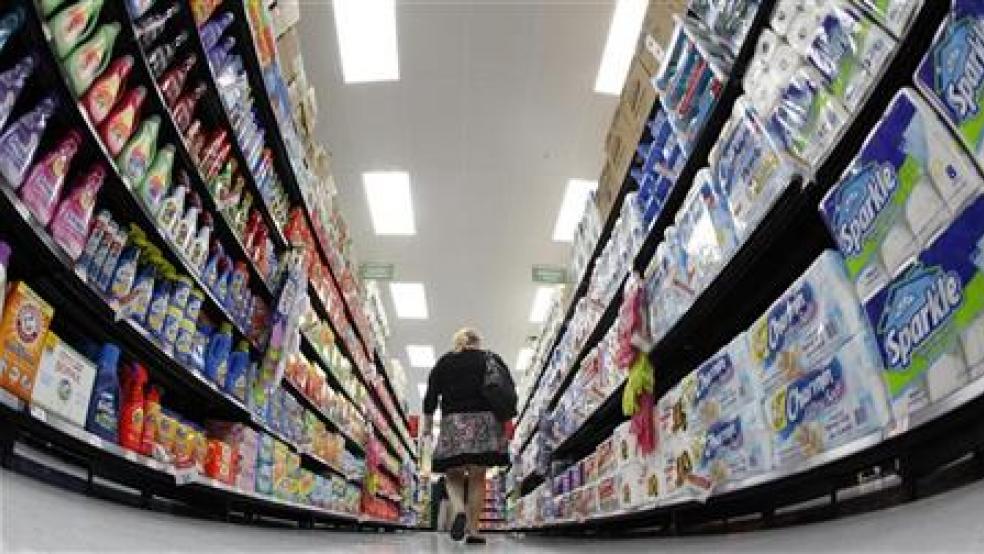NEW YORK (Reuters) - U.S. consumer sentiment improved in early August to the highest in three months as sales at retailers and low mortgage rates spurred Americans to boost their buying plans, a survey showed on Friday.
But concerns about rising food prices caused a jump in both short- and long-term inflation expectations, according to the Thomson Reuters/University of Michigan consumer sentiment survey.
The data reinforced the view that economic growth could pick up in the second half of the year but still be lackluster. That was reinforced by July's leading indicator.
Growth and hiring were disappointing in the spring, but hiring picked up in July and consumers are now feeling more confident about spending, though they remain concerned about the economic outlook.
With stubbornly high unemployment and a weaker global economic picture, some analysts have raised their expectations that the Federal Reserve could launch a new round of bond buying to help prop up the economy.
"We've had this mixed bag from the economic data," said Ryan Detrick, senior technical strategist at Schaeffer's Investment Research in Cincinnati, Ohio. "We are all just kind of wondering 'Is this recovery real?'"
The preliminary reading on the index on consumer sentiment rose to its highest level since May, at 73.6 from 72.3 last month, topping economists' forecasts for a slight uptick to 72.4.
Americans were also more optimistic about the state of the economy, with the measure of current economic conditions rising to its highest level since January 2008 at 87.6 from 82.7.
Purchasing plans were bolstered by cheap prices, and the measure of buying conditions for household durables rose to 140 from 130.
Consumers' outlook cooled, with the expectations index slipping to 64.5 from 65.6, the lowest since December. The majority of households expected no income increase during the year ahead, while one-in-four thought the unemployment rate would rise.
"People are still concerned about jobs, but they're seeing home prices stabilize so they're feeling better about that," said Gary Thayer, chief macro strategist at Wells Fargo Advisors in St. Louis.
U.S. stocks were little changed in late morning trading, while the dollar hit a five-week high against the yen. Treasuries yields edged down but remained near three-month highs.
INFLATION FEARS
Growth in personal spending is likely to be just under 2 percent into early next year, said survey director Richard Curtin.
The one-year inflation expectation rose to the highest level since March at 3.6 percent from 3.0 percent as consumers worried about the impact a drought in the U.S. Midwest could have on food prices.
The five-to-10-year inflation outlook also gained, to 3.0 percent from 2.7 percent.
Separate data showed a gauge of future U.S. economic activity improved in July on a drop in new claims for jobless benefits and an increase in housing permits. Still, the reading pointed to sluggish growth ahead.
The Conference Board said its Leading Economic Index climbed 0.4 percent to 95.8 for July, reversing a 0.4 percent decline in June.
The odds that the Fed will launch a third round of bond buying, known as quantitative easing, have risen to 60 percent, according to a Reuters poll released on Friday.
The majority thought the central bank's next policy meeting in September was the most likely time for an announcement. The consensus was for $500 billion in bond purchases, adding to the $2.3 trillion in assets the Fed has already bought.
As the summer winds down, analysts are turning their attention to Fed Chairman Ben Bernanke's speech at a gathering in Jackson Hole, Wyoming, in late August as having the potential to shed some light on the central bank's plans.
(Additional reporting by Chuck Mikolajczak and Ellen Freilich in New York, Jason Lange in Washington; Editing by Dan Grebler)


